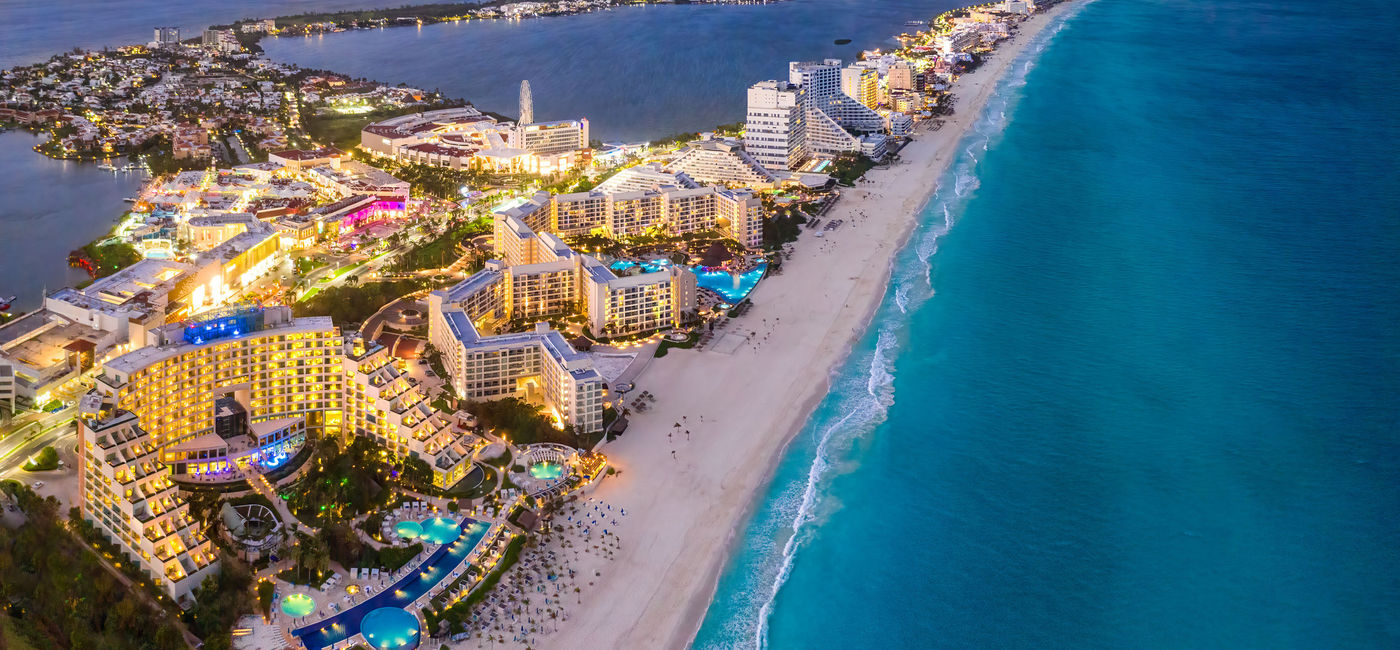Cancun Region Is Home to Half of Mexico’s Tourism Scams

The perennially popular Mexican Caribbean resort town of Cancun is positioned to prove American travelers’ top summer destination this year, according to Expedia Group’s data. And, with each passing year, the neighboring tropical region of Riviera Maya draws ever more visitors, thanks to its gorgeous natural environment, year-round warm weather and wealth of cultural sites.
Both destinations reside in the Mexican state of Quintana Roo, where, it has just been revealed, fully half of the 450,000 instances of tourist fraud that were perpetrated in Mexico in 2022 occurred.
That’s certainly an alarming revelation for Americans who are hoping to make Cancun or its surrounding areas their next vacation destination. But, the good news is that Mexico’s Tourism Bureau and the Mexican Association of Travel Agencies (AMAV) are taking meaningful steps to combat such scams, and protect both international tourists and legitimate local tourism businesses.
This week will kick off a national campaign that aims to educate travelers about ways to avoid becoming a victim of these deceptive practices, including purchasing fake travel package ruses, in-destination tours and experiences, and more.
In April, nearly four thousand Mexico Tourism Bureau-affiliated travel agencies came together to come up with a strategy for reducing fraudulent schemes by phony travel companies that target unsuspecting tourists.
“We want to close the gap in frauds, particularly in online purchases and for those that realize the company does not exist upon arrival, which affects vacations, as well as the destination’s image,” said José Moreno, president of the Mexico Tourism Bureau.
“Our main objective is to inform the consumer about the situation with ‘grandiose’ names, such as cyberfraud,” said Felipe Cervantes Vega, president of the Mexican Association of Travel Agencies (AMAV). ”We want to be on the side of consumers to inform them what is serious and what is not, so that the effort of a whole year does not disappear.”
With tourism fraud on the rise throughout the Mexican Caribbean, The Cancun Sun shared some tips to help prospective visitors avoid fraudulent offers.
Don’t Book Through Social Media
We’re all aware of the many paid posts that appear in social media feeds advertising amazing getaways at unbelievably affordable prices. But, such host platforms don’t regulate or verify the legitimacy of those advertisers, so social media has become one of the top methods scammers use to trick people into buying fake products. If you see a vacation offer you want to book, research the company that’s posting it beforehand.
Don’t Book Deals That Seem Too Good To Be True
A good rule of thumb is that, if an offer sounds too good to be true, it probably is. Fraudsters often lure in tourists who are excited at the prospect of getting a great deal by promising travel products and services at well below market prices.
Book Through a Reputable Travel Agency
If you want to be certain you’re not getting scammed, book your vacation through an established travel agency. Professional travel advisors’ thorough and specialist knowledge about operators in the region make them far less likely to buy into any scams.
Check the Customer Reviews
It’s always wise to perform a Google search on the company you’re planning to book through. Perusing previous customers’ reviews on Google or another website will give you some insight about the business’ dealings and reputation. Still, you need to stay vigilant because scammers sometimes leave fake reviews for themselves. However, if the provider has an extensive number of positive reviews and no accusations of fraud, it’s probably legitimate.
